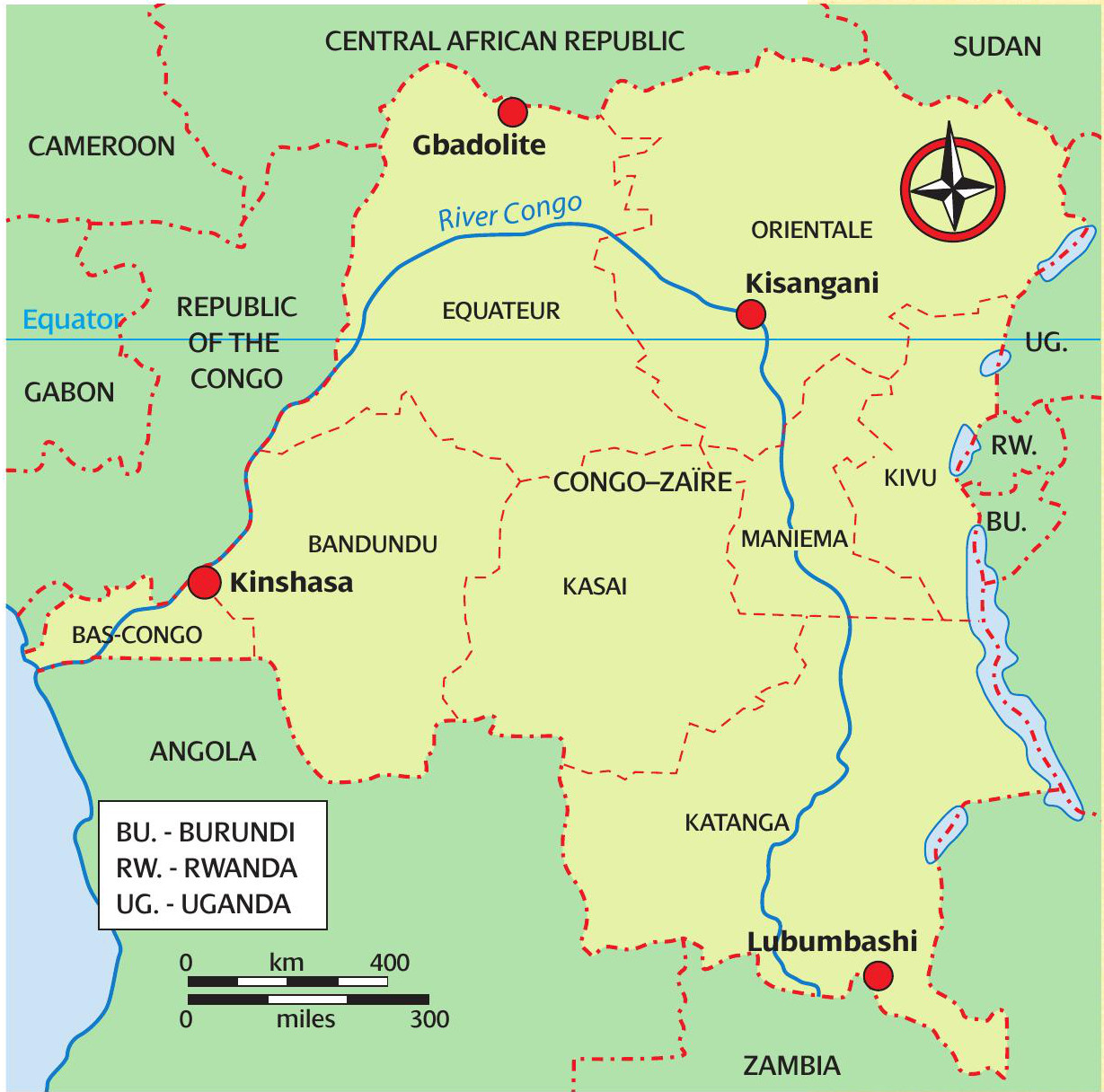
In May 1997 Joseph Désiré Mobutu left Zaïre, the country he had ruled for 32 years, for the last time. With rebels arriving on the outskirts of the capital city, Kinshasa, he boarded a plane. Within a few months he would die in exile in Morocco. Universally despised as a plunderer of his own country, with millions of dollars deposited in Swiss bank accounts and a property portfolio of palaces, estates, and apartments in Brussels and Paris, Mobutu left behind a broken country. The infrastructure had collapsed and the country’s roads were the worst in Africa. The army, after years of poor discipline caused by poor management and irregular pay, had fallen apart, running away from the rebels. The currency was in free fall, and public servants had long ceased to receive regular pay. The rich mineral reserves had failed to enrich the wider population. On the streets of the teeming capital Kinshasa, lawlessness reigned.
Worse was to follow. Mobutu regularly prophesied that only he could keep the country together. The new leader, Laurent Kabila, changed the country’s name to Democratic Republic of Congo, but the problems worsened and intensified. Congo became a theatre of what has been named Africa’s world war (1998–2003): eight African armies scrambled for the country’s assets and caused an estimated 3.9 million war-related deaths, more than in any other conflict since the Second World War.
Your organisation does not have access to this article.
Sign up today to give your students the edge they need to achieve their best grades with subject expertise
Subscribe




